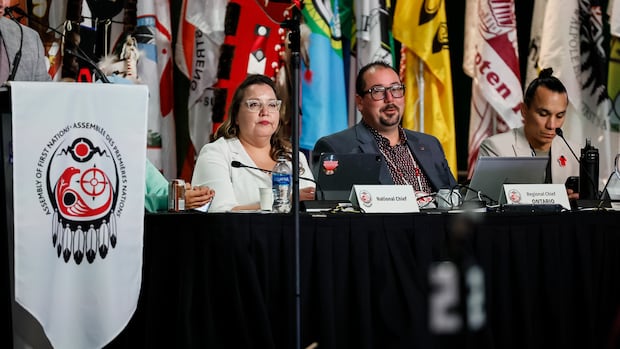Discussions at the Assembly of First Nations (AFN) annual general assembly in Winnipeg delved into systemic racism in policing and the imperative to establish more First Nations police services. The second day’s discussions revolved around policing, with leaders and experts emphasizing the pressing need for change.
Terry Teegee, AFN regional chief for British Columbia, highlighted the concerning increase in deaths in custody among First Nations individuals in the latter part of the previous year. He noted that from August to November 2024, 10 First Nations people lost their lives following encounters with the police, stressing that this issue is not isolated but a recurring pattern affecting Indigenous communities nationwide.
The AFN had previously passed an emergency resolution in December, urging a national inquiry into the disproportionately high number of police-related deaths among First Nations people, a resolution that remains in effect. Jerry Swamp, president of the First Nations Chiefs of Police Association, echoed the call for an updated funding model for First Nations police services to prevent further tragedies.
Swamp emphasized the importance of providing culturally responsible policing to Indigenous communities, questioning why such a provision is not standard in mainstream policing agreements. He highlighted the need for enhanced training and funding to ensure culturally sensitive policing practices and prevent future fatalities.
Recent legal cases in Quebec and Ontario have underscored the chronic underfunding of First Nations police services in Canada. AFN Quebec-Labrador Regional Chief Francis Verreault-Paul emphasized the urgent need for legislation recognizing First Nation policing as an essential service and ensuring equitable funding to meet the genuine needs of these communities.
During the assembly, discussions also touched on over 50 draft resolutions, with particular focus on two resolutions related to Bill C-5, the Building Canada Act. While the federal government touts the economic benefits of the bill, concerns were raised by First Nations leaders about potential infringements on Indigenous rights due to the expedited project approval process bypassing consultation requirements.
Ultimately, the assembly voted on resolutions, with some emphasizing the need to address the infrastructure gap in First Nations communities and advocate for the Jordan’s Principle program. Resolutions were passed urging Indigenous Services Canada to reverse operational changes and eliminate funding backlogs under Jordan’s Principle.
The assembly continues to address critical issues facing First Nations communities, advocating for meaningful reforms and equitable treatment within the Canadian justice system and policing services.



